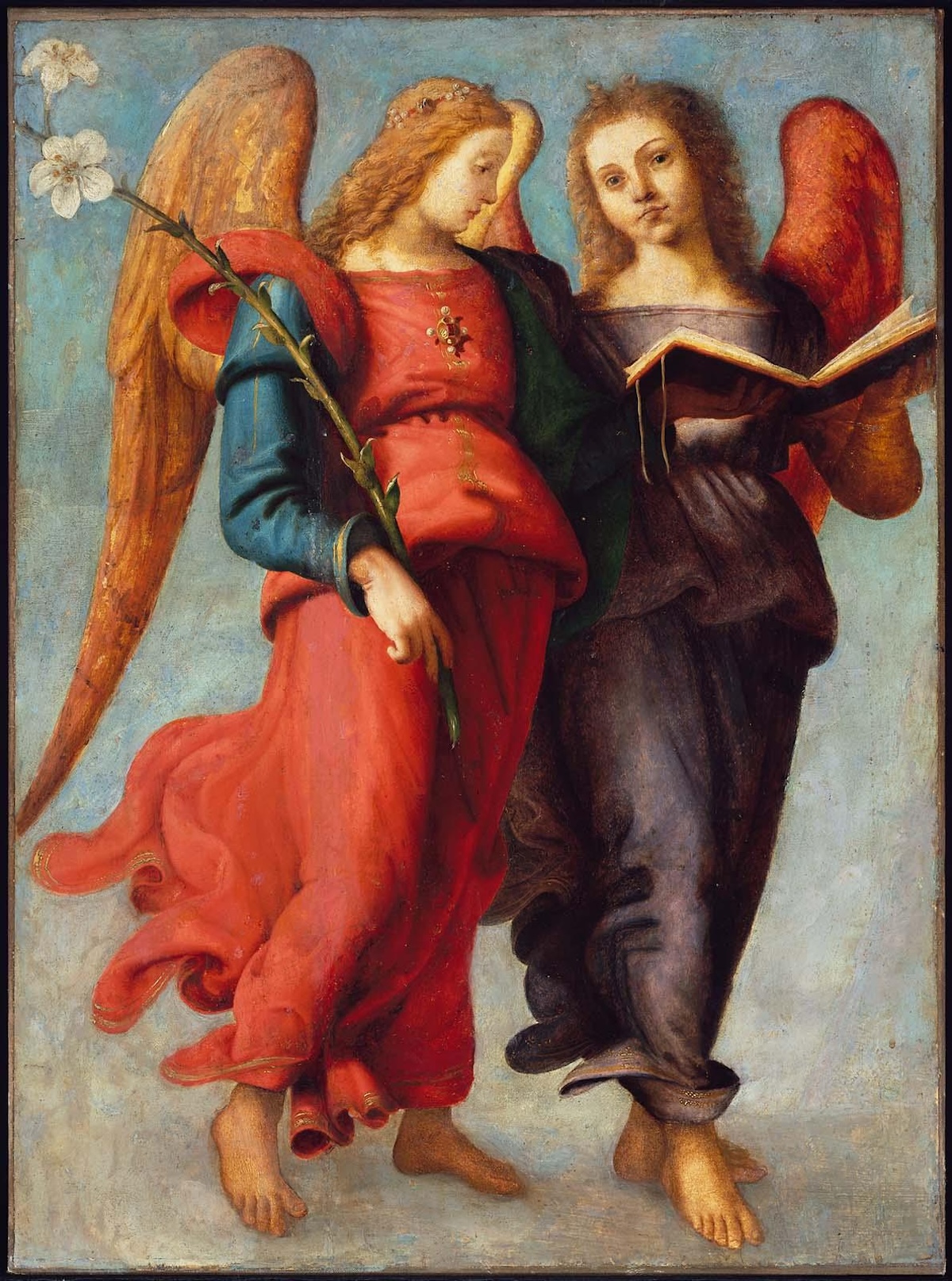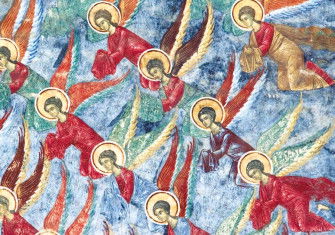‘The Grammar of Angels’ by Edward Wilson-Lee review
The Grammar of Angels: A Search for the Magical Powers of Language by Edward Wilson-Lee finds in Giovanni Pico della Mirandola a case for the Rennaissance as a triumph not of individuality, but of universal experience.

From Giorgio Vasari’s The Lives of the Artists (1550) to Jacob Burckhardt’s The Civilization of the Renaissance in Italy (1860), the Italian Renaissance has been viewed as the age of the lone genius. Alongside Leonardo da Vinci, Michelangelo, and the eccentric goldsmith Benvenuto Cellini, the philosophical prodigy Giovanni Pico della Mirandola had proven a pre-eminent example of the type.
Born into nobility in 1463, Pico displayed a precocious talent for learning. As a child he could reportedly recite Dante’s Commedia both forwards and backwards. He enjoyed a meteoric rise to fame in Lorenzo de’ Medici’s Florence, where he caught the attention of luminaries including Marsilio Ficino and Angelo Poliziano. Aged 24, he arrived in Rome with a list of 900 theses, which he offered to defend against all challengers. Some of Pico’s theses proved too much for the papal authorities, and he fled to Paris. Returning to Florence, he settled down to a life of study, but could not help but get caught up in the political upheavals that followed Lorenzo’s death in 1492. Pico helped bring the controversial Dominican friar Girolamo Savonarola to Florence, before dying from a sudden and mysterious illness, aged 31.
In Edward Wilson-Lee’s telling of this rambunctious life story, Pico remains an impulsive maverick. But a poster boy for individualism he is not. Quite the opposite: Pico’s philosophical enquiries were underpinned by a deep uncertainty about individual identity and the difficulty of proving the separateness of one human from the greater whole of humanity. Pico was a synthesiser, seeking to bring together all philosophical knowledge into one universal whole. Drawing on a wide array of sources – including Plato, Averroes, and the Jewish kabbalist tradition – Pico reopened the radical question of whether humans really were particular, independent beings, or whether (in Wilson-Lee’s helpful recurring image) we are like the crest of a wave, which though appearing individual in fact form small parts of a greater oceanic whole. Pico offers proof that the Renaissance could be about transcending individuality, rather than the triumph of the individual.
Looking beyond Florence, Wilson-Lee stresses the influence of Paris, the great centre of scholastic theology. Pico’s debt to medieval scholasticism challenges outdated assumptions about the Renaissance, in which humanists rejected and displaced scholastics. Still too often written off as pedantic quibbling about how many angels could dance on the head of a pin, Pico’s writings instead reveal a scholasticism that was intellectually adventurous, radical and – at times – even dangerous.
Far from irrelevant abstractions, angels were a crucial thought experiment which lay at the core of scholastic (and Pico’s) thought. According to Aristotle, what makes humans distinctive is the fact that they need to live alongside others: as he put it at the start of his Politics, ‘man is a political animal’. Herein lay the crucial difference from instinct-driven animals (humans could cooperate through speech and reason) and the perfect reason of gods (who had no need of others). For the scholastic theologian Thomas Aquinas, working to make Aristotle consistent with Christianity, gods (in the pagan plural) were replaced by angels. A step up from humans in the divine hierarchy, angels were unencumbered by fallible, sinful bodies and represented a purer form of reason.
This was a framework which suggested a tantalising possibility: could humans – through a higher philosophical understanding – become angels? Could they share in a perfect, universal intellect? Throughout this lively and stylish intellectual biography, Wilson-Lee traces Pico’s investigation of this question. The experience is immersive: like Pico, the reader is thrown into multifarious philosophical contexts and traditions. Taking inspiration from anthropology as much as history, Wilson-Lee draws comparisons between very different times and places. For instance, we are taken on a whistlestop tour of culturally varied interest in the language of birds, from the Mixtecs to Icelandic epics, to the Brahmins of India. This sets Pico’s interest in the language of angels – ‘bird men’ – in broader context. Pico was entranced by forms of language that go beyond meaning and reason, which pointed towards a universal experience, shared across all times and places.
Pico’s obsession with the power of language explains his fascination with the enigmatic Savonarola, who urged his Florentine listeners to give up vanities and live purer spiritual lives. The friar’s accusatory yet beguiling preaching style had a mesmeric effect: it is said that the artist Botticelli was convinced to burn his own paintings. Here was the power of language writ large. Pico died at the Dominican monastery of San Marco in 1494 and therefore did not live to see Savonarola’s fall, burnt as a fraud in 1498. By then, Florence’s moment of mass religious hysteria had passed, and so too had Pico’s quest for universal understanding.
For Wilson-Lee, Pico’s embrace of human oneness provides a valuable counterpoint to a modern Western world in which individualism has become an unthinking norm. As Wilson-Lee points out, over the span of history it has been far more common for humans to put collective identities first. The thrill of losing oneself in a communal whole has a dark history, lying at the heart of 20th-century fascism. But the historical narrative outlined in The Grammar of Angels challenges us to ask if we have now gone too far in the other direction. Do we lack philosophical tools for tackling genuinely communal challenges such as the Covid pandemic or climate change? Perhaps, Wilson-Lee suggests, by becoming more attuned to this very human instinct ‘to dissolve the individuals in larger groups and structures’, we might learn to be more discerning about the communities we choose to form. We are not angels, but we can shape our collective destiny.
-
The Grammar of Angels: A Search for the Magical Powers of Language
Edward Wilson-Lee
William Collins, 288pp, £35
Eloise Davies is Assistant Professor of Humanities at the University of Florida.






